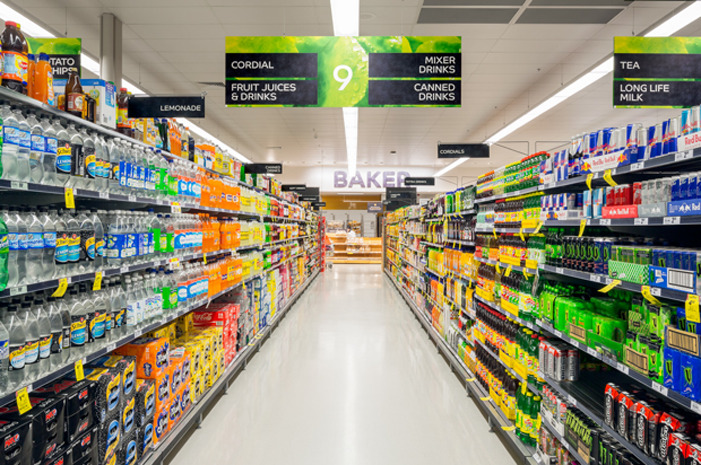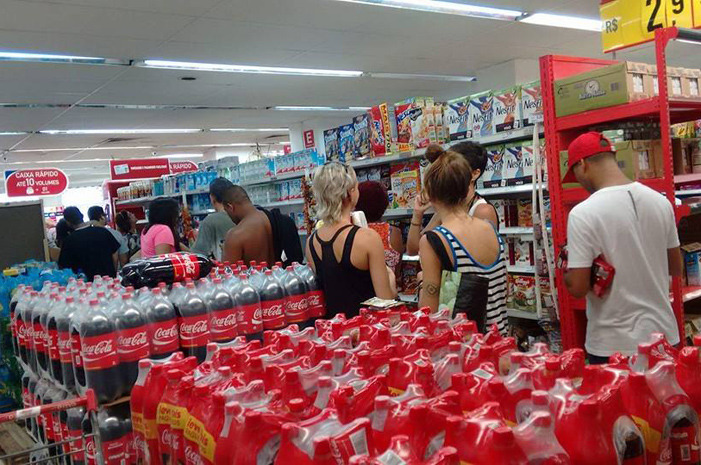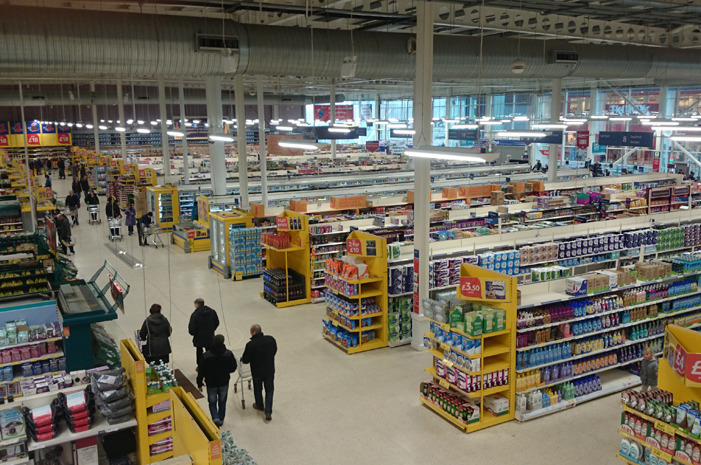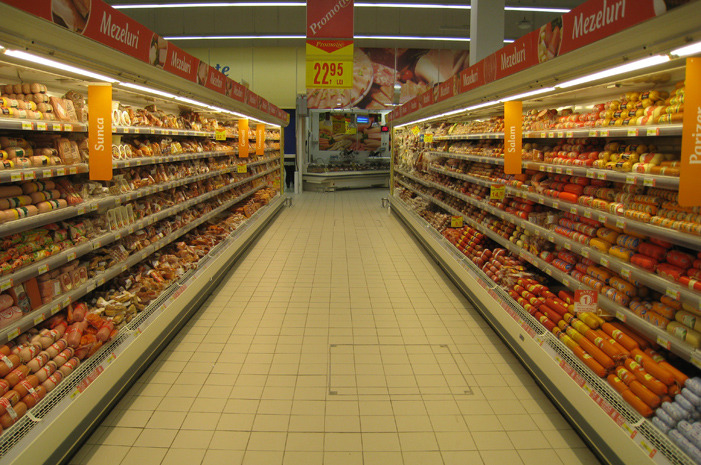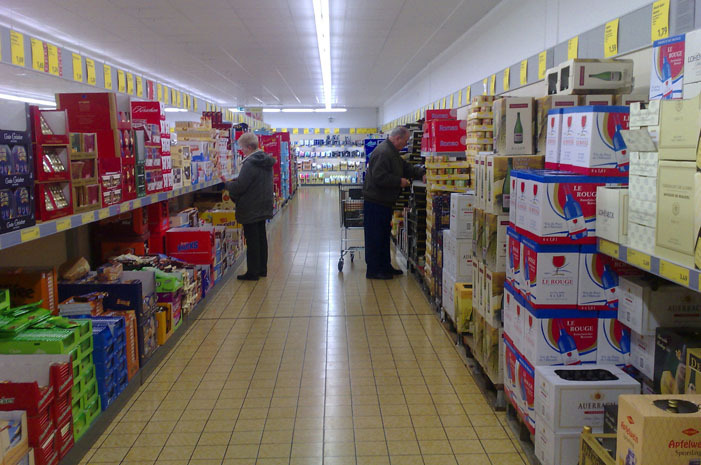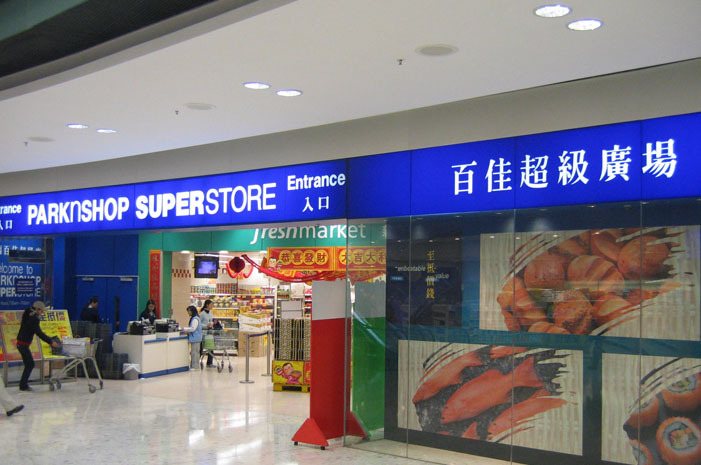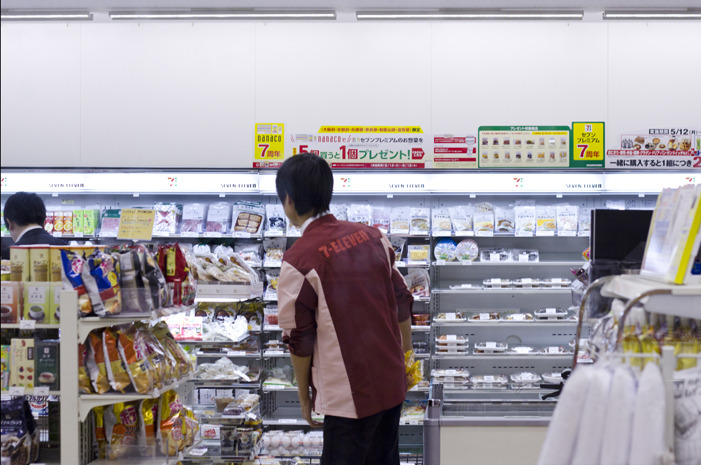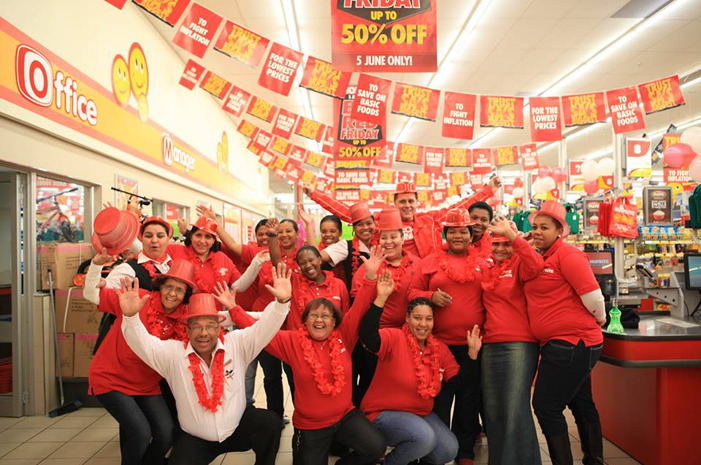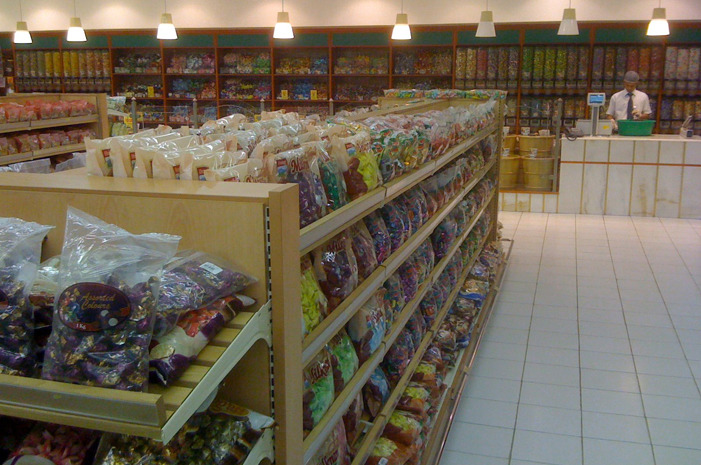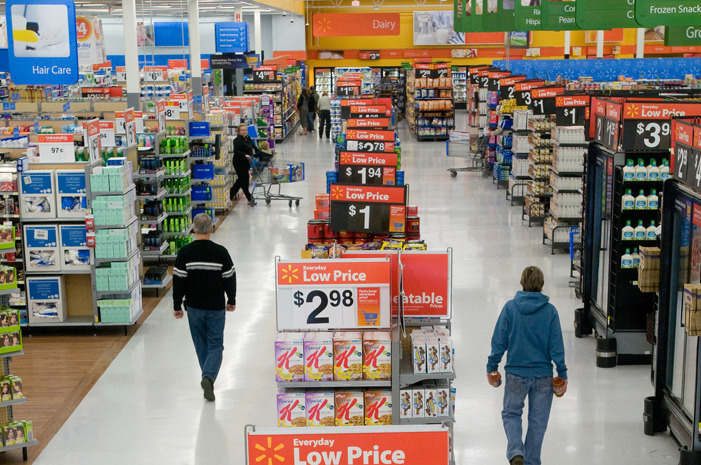What Supermarkets Look Like Around The World (Slideshow)
Known colloquially as "Woolies," Woolworths, along with Coles, form a near duopoly of Australian supermarkets, together accounting for about 80 percent of the country's market share. Unlike most grocery chains, which eventually expand into supermarket-department store hybrids, Woolworths actually began in 1924 with a larger variety of goods, but has slowly shifted to focus on food only, with a separate "Big W" brand opening in 1964 as a department store. Woolworths has had a focus on fresh eating since its "Fresh Food People" campaign began in 1987, and now includes organic, vegetarian, and gluten-free offerings as part of its "Macro Wholefoods Market" brand. In addition, in order to fit with most shopper's budgets and desires, the company introduced "Homebrand," "Select," "Gold," and "Fresh" labels.
Despite the similarity in name, Woolworths has no affiliation with the F.W. Woolworth Company's now-defunct Woolworth's five-and-dime stores in America.
Brazil — Extra
When it comes to grocery shopping in Brazil, no company is larger than Companhia Brasileira de Distribuição, which owns 2,159 hypermarkets, supermarkets, smaller grocery stores, convenience stores, and appliance shops under various names, including Pão de Açúcar (which was the original name of the whole company), Extra Perto, and Mini Mercado Extra. This means Brazilians have the opportunity to shop in stores of various sizes, offering various types of goods and various brands of each, at various price levels. Currently, with the Brazilian economy struggling and inflation and unemployment both rising, the cheaper outlets are performing better, and competition is increasing as companies like Walmart move in. In order to stay afloat, CBD will have to continue to adapt. Having been founded in 1948, it has had a lot of experience doing just that.
Looking to go out to eat in Brazil? Here are the country's 10 best restaurants.
England — Tesco
Tesco began in England back in 1919 with Jack Cohen and just a few market stalls. It has since grown to over 6,800 stores in a dozen European and Asian countries. Originally modeled as a low-cost, high-volume retailer, Tesco has expanded its selection to include cheaper "Tesco Value" items, as well as higher-quality "Tesco Finest" offerings, in addition to standard-priced goods. Tesco also offers store types in a range of sizes, including (smallest to largest): One Stop, Tesco Express, Tesco Metro, Tesco Superstore, and Tesco Extra. The latter are hypermarkets that offer much more than food, and some stores have cafés or restaurants located inside, or attached gas stations. Tesco is the third-largest retailer in the world by profits, second-largest by revenue.
Click here to read about how a Tesco store in Malaysia "punished" a shoplifter.
France — Carrefour
The first Carrefour (translation: "crossroads") was opened in Annecy, France, in 1958 near a busy local intersection. There are now over 3,462 Carrefour grocery stores around the world. Carrefour emphasized two things in its stores: variety and freshness. Even the French stores carry a large selection of foods from around the world, but of course the bread, pastries, and other baked goods are a major strength, as are the cheeses that pair well with them. Carrefour was the first company in Europe to open a hypermarket, or a large supermarket and department store under the same roof (back in 1963), so many stores will also sell anything from drug store goods to entertainment/media and electronics to clothing. All-in-all, Carrefour operates over 10,100 stores, making it fourth-largest retail group in the world after Walmart, Tesco, and Costco.
Germany — Aldi
Although Aldi now operates almost 10,000 stores in 18 countries, it began with a single store that was opened in 1946 by brothers Karl and Theo Albrecht in Essen, Germany. Aldi (short for "Albrecht-Diskont") is known for pushing its own exclusively produced store brands (which usually look very similar to competitor's products), and often limits the number of other brands available to one or two — which allows for the most profit for the company, and also makes it easier to keep the stores from becoming too large. In addition to food, Aldi also carries other staple items like toiletries, other inexpensive household items, and beverages. The company is the largest wine retailer in Germany.
Read about Aldi's efforts to make its food healthier and more natural.
Hong Kong — PARKnSHOP
Although international companies like Walmart, Tesco, and Carrefour have penetrated the mainland Chinese market successfully, it's still difficult to name a leader in the region. In Hong Kong, however, PARKnSHOP (300 stores, 9,000 employees) is king, with Wellcome finishing as a close second. Looking to cater to the largest amount of customers, PARKnSHOP offers store-brand products of the bargain ("Best Buy") and high-quality ("Private Label") varieties, and everything in between, and store sizes can range from a traditional supermarket to "Superstores" and even larger "Megastores." PARKnSHOP focuses mostly on domestic food products, but it also has partnerships with the U.K.'s Waitrose supermarkets and France's Groupe Casino, and opened upmarket stores (rebranded as "TASTE") in order to feature more imported brands and also non-food items.
Japan — 7-Eleven
Supermarkets in Japan differ from others around the world in a few ways. First, most are primarily grocery stores, meaning they typically only sell food, at a time when most retailers are trying to offer the widest variety of product types. Second, when it comes to the actual food, most stores reflect Japanese culture instead of mixing together various brands and cuisines of the world — although larger chains (and international chains, obviously) will have a larger selection. Japan's shoppers are notoriously picky, and thus no supermarket chain — domestic or international — has managed to control the local market. Curiously, the leading seller of food in Japan is currently 7-Eleven, which operates 18, 249 stores in the country — amounting to a stunning 31 percent of its stores globally. Unlike the American 7-Elevens, which only sell the bare necessities in a convenience store format, Japan's stores are often a bit larger and sell a wider selection of products and services.
7-Eleven recently released a Slurpee doughnut, which you can read all about here.
South Africa — Shoprite
Not to be confused with American supermarket chain ShopRite, Shoprite is a South African company which operates 1,825 corporate and 363 franchise outlets (under various names) in 15 countries in Africa and the Indian Ocean Islands. It was opened in 1979, and first expanded outside of South Africa to Namibia in 1990. The company's primary goal is to appeal to consumers of all income levels by providing a first-world shopping environment (regardless of the geographical location) with the lowest possible prices, while also contributing to the nurturing of stable economies and the social uplifting of the people. Related actions include locking prices on certain necessities when inflation rises, running campaigns to provide clean water to those in need, and offering budget cell phone service plans. Shoprite partners with Freshmark to ensure a wide variety of fresh, seasonal produce is available at all stores.
Headed to South Africa? Here's how to make the most of a short trip.
United Arab Emirates — LuLu Hypermarket
Not only is the United Arab Emirates-based LuLu Hypermarket the largest supermarket chain in the Middle East, but it's also one of the fastest-growing chains in the world. Although the first store only opened 16 years ago, there are now 123 in total, with 10 more planned to open in Malaysia later this year. Offering a mix of international products, the stores use the tagline "LuLu, where the world comes to shop" to illustrate this. The company also works closely with local farmers and entrepreneurs (as well as small and medium-sized producers) to supply fresh fruits and vegetables to its stores, and regularly teams up with organizations for various social responsibility initiatives — like its work with Zayed Higher Organization for Humanitarian Care and Special Needs, which sells organic, local products grown by the special needs community in UAE. As the name suggests, many LuLu Hypermarkets sell more than just food items, including home goods, electronics, and more.
United States — Walmart
Although there are a number of very successful grocery stores with locations all across America, Walmart still blows everyone else out of the water. There are over 3,000 Supercenters in the United States alone, and in addition to food of all varieties (meat, seafood, produce, bread, frozen, etc.), the stores also sell toiletries, electronics, clothing, home goods, plant and garden supplies, and many even include restaurants, auto shops, salons, and healthcare services. If there has ever been an actual "one-stop shop," Walmart is definitely it.
